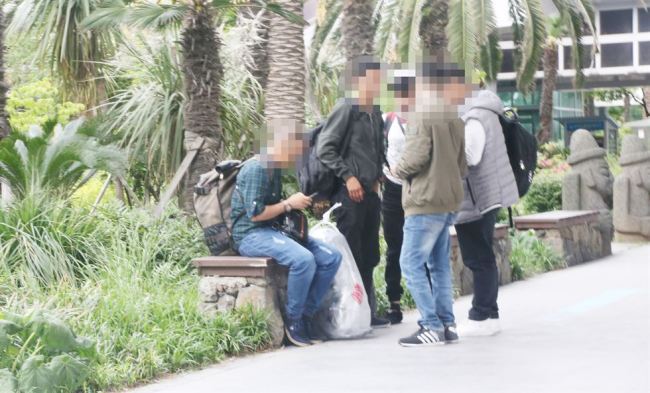Yemeni asylum seekers on Jeju still need medical assistance: human rights agency
By Claire LeePublished : July 6, 2018 - 17:58
At least 32 Yemeni asylum seekers on South Korea’s Jeju Island are in need of medical attention, despite Seoul’s announcement last month that it has offered food and medical assistance to the refugees, the National Human Rights Commission of Korea has found.
“We have found that most of the support programs for the Yemeni asylum seekers on Jeju are in fact being organized and provided by nongovernmental bodies and groups,” the agency said in a statement.
“We hope the central government and Jeju provincial government will provide the necessary assistance to Yemeni asylum seekers, including language and medical support, at least until they hear back from Seoul on the outcomes of their asylum applications within the next two or three months.”
“We have found that most of the support programs for the Yemeni asylum seekers on Jeju are in fact being organized and provided by nongovernmental bodies and groups,” the agency said in a statement.
“We hope the central government and Jeju provincial government will provide the necessary assistance to Yemeni asylum seekers, including language and medical support, at least until they hear back from Seoul on the outcomes of their asylum applications within the next two or three months.”

The state-run human rights agency released the statement after speaking to some 144 Yemeni refugees on Jeju Island from June 29-30. The findings go against what Cheong Wa Dae said last month, that it has adhered to the 1951 UN Convention Relating to the Status of Refugees that allows people to apply for asylum. In June, Kim Eui-kyeom, a spokesperson for President Moon Jae-in, said the government was providing the refugees with food and medical services.
The National Human Rights Commission has found, however, that 32 of the refugees were still in need of medical support, some with serious health issues. Among the medical conditions refugees were experiencing were severe diabetes and aftereffects of gunshot wounds.
All the refugees who spoke to the agency said they were desperately in need of stable work to support themselves.
The agency has found that 12 asylum seekers had not been paid for work they had done on Jeju Island. Most of them worked as day laborers at Jeju’s fish farms or on fishing boats. None were able to find a job that would allow them to work for more than five days at a time.
The refugees also told the agency that they experienced language barriers and cultural differences while working for Koreans, and sometimes these led them to quitting the jobs or being fired.
“(On top of medical support,) We think it is also necessary to offer Korean language classes, as well as educational sessions on cultural differences, to the asylum seekers on Jeju,” the agency said.
Since January, some 500 Yemenis fleeing a civil war in their country have arrived on Korea’s southernmost island of Jeju and applied for asylum. Their presence has sparked a public uproar in South Korea, with more than 631,000 Koreans signing an online petition to Cheong Wa Dae asking the government to “turn away all refugees” as of Friday afternoon.
In response to mounting public criticism, Jeju’s immigration office banned the Yemenis from leaving the island on April 30, preventing them from entering the peninsula. Jeju also removed Yemen from its list of countries allowed visa-free entry in May.
By Claire Lee (dyc@heraldcorp.com)







![[KH Explains] How should Korea adjust its trade defenses against Chinese EVs?](http://res.heraldm.com/phpwas/restmb_idxmake.php?idx=644&simg=/content/image/2024/04/15/20240415050562_0.jpg&u=20240415144419)










![[Today’s K-pop] Stray Kids to return soon: report](http://res.heraldm.com/phpwas/restmb_idxmake.php?idx=642&simg=/content/image/2024/04/16/20240416050713_0.jpg&u=)